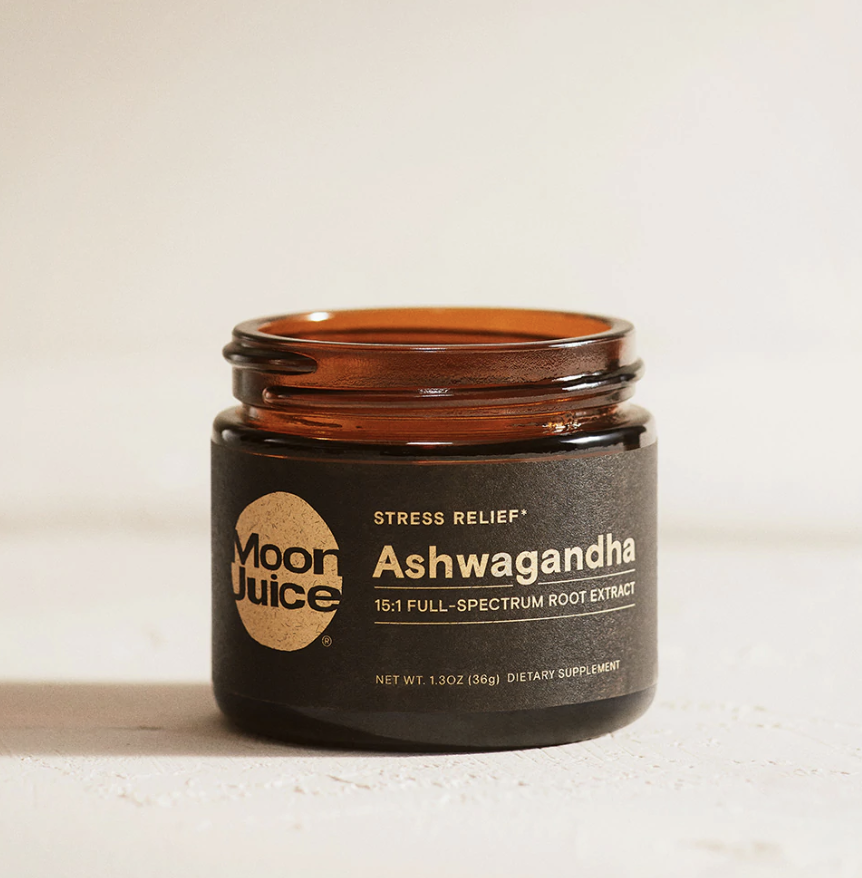What Is Ashwagandha? This Stress-Busting Supplement Is Blowing Up on TikTok

If you purchase an independently reviewed product or service through a link on our website, SheKnows may receive an affiliate commission.
Ashwagandha, the non-toxic herb, is yet another TikTok trend that’s gaining attention in the U.S. for its ability to help bust stress and anxiety — and after these two years, we need all the help we can get to calm our nervous system.
More from SheKnows
According to hormone nutritionist Maritza Worthington, FDN-P, CHNC, ashwagandha, also known as Withania somnifera (WS), “Indian Winter cherry” or “Indian Ginseng,” ashwagandha’s root, leaves, and seeds have been historically used as a tonic to assist with stress, neuroprotection, arthritis, pain, and inflammation, and is one of the most highly regarded ayurvedic and alternative medicines.
“As a Hormone Nutritionist who helps women recover from adrenal exhaustion (burnout) and hormone imbalances, ashwagandha is one of my favorite anti-stress herbs to recommend,” she tells SheKnows.
Click here to read the full article.
So what is it about this herb that’s so effective and how might you integrate it into your lifestyle? Read on for insights from our experts to decide whether ashwagandha is right for you.
What is Ashwagandha?
Ashwagandha is an Ayurvedic adaptogenic herb which comes from India.
“Adaptogens are a class of herbs which are shown to reduce and modulate (balance/regulate) the stress response while also supporting better mood, energy, focus and immunity,” says registered dietitian Jenna Volpe. “They are special because most of these will work synergistically with the body versus a pharmaceutical which usually has an ‘upper’ or ‘downer’ effect.”
Worthington says she likes to recommend the herd to support a healthy endocrine (hormone) system due to its therapeutic and balancing effect on the entire neuroendocrine system.
“Adaptogens are herbs that are designed to survive in stressful environments and temperatures, making them more resilient. It’s fascinating how adaptogens pass on their resiliency to human beings, displaying how interconnected we all are,” she says. “The power of ashwagandha lies in its ability to help the body develop a more resilient & adaptive stress response by improving communication between the hypothalamus and adrenal glands. All of this is amazing for increased energy conservation and relaxation.”
Moon Juice
Ashwagandha Root Powder Extract
$38
Sign Up
What is Ashwagandha’s relationship with stress?
When you’re feeling stressed the hormone cortisol is released in response to your stress and low blood sugar levels. Many studies have proven that Ashwagandha can help decrease cortisol levels, including one that found that ashwagandha root taken daily for two months resulted in almost 25% reduction in the stress hormone cortisol.
While many adaptogens tend to be stimulating, Worthington says ashwagandha can enhance endocrine function, regulate the thyroid (hypothyroidism), testes, and adrenal glands. “This herb can positively stimulate the thyroid, which is why it’s recommended for hypothyroidism support. On top of that, this nervine herb is also very effective for anxiety, fatigue, cloudy thinking, and stress induced insomnia.”
Best ways to take ashwagandha
“Ashwagandha, like many other herbs, needs to be properly extracted in order to reap its medicinal benefits,” says Volpe.
If taking ashwagandha as a tea, Volpe recommends making it via a decoction (simmered for 20 minutes) and not steeped as a tea bag.
“If going this route, I highly recommend incorporating ashwagandha into a chai tea with some milk/milk substitute and natural sweetener of choice, for palatability since it’s very bitter,” she says.
Because ashwagandha root is fat-soluble, meaning it can be dissolved in a fat such as ghee or coconut oil, Volpe recommends using a ghee-infused ashwagandha oil in cooking regularly is an easy way to reap the benefits of this Ayurvedic adaptogen.
Ashwagandha can also be taken as a tincture, which is an alcohol extract of the plant. To extract the medicinal benefits, Volpe says dried ashwagandha root must be submerged in an alcohol such as brandy for about 15 to 30 days or longer. The ratio of dried plant material to alcohol should be 1 oz. by weight of herb for every 5 oz. alcohol by volume. Ashwagandha tinctures can be taken multiple times daily. A standard dose of ashwagandha tincture is ~30 drops, three times a day.”
While Ashwagandha in capsules and powders can work, Volpe says they’re not as effective unless the ashwagandha has been pre-extracted, which would be specified in the label.
If used as a stress relief therapy, Worthington says best results can be seen with at least 125-130mg for eight weeks. “Keep in mind, high doses might cause GI upset, so dosages vary according to body mass! When considering using ashwagandha as a natural herbal treatment, always consult with your healthcare provider first.”
When not to take ashwagandha
According to Worthington it’s best to avoid ashwagandha herb if you are sensitive to nightshade vegetables (since the herb is a nightshade), or if you’ve been diagnosed with hemochromatosis, hyperthyroidism, or low blood pressure. “It’s also good to note that this herb should be avoided during pregnancy, since there are no studies on the safety of use with children.”
Volpe adds that people with thyroid conditions or hormone imbalance should consult their healthcare providers before taking ashwagandha, since it can increase thyroid function as well as testosterone levels in some people.
Before you go, check out our favorite quotes to inspire healthy attitudes about food and bodies:
Launch Gallery: The Best Amazon Home & Kitchen Products on TikTok
Best of SheKnows
Sign up for SheKnows' Newsletter.
For the latest news, follow us on Facebook, Twitter, and Instagram.



